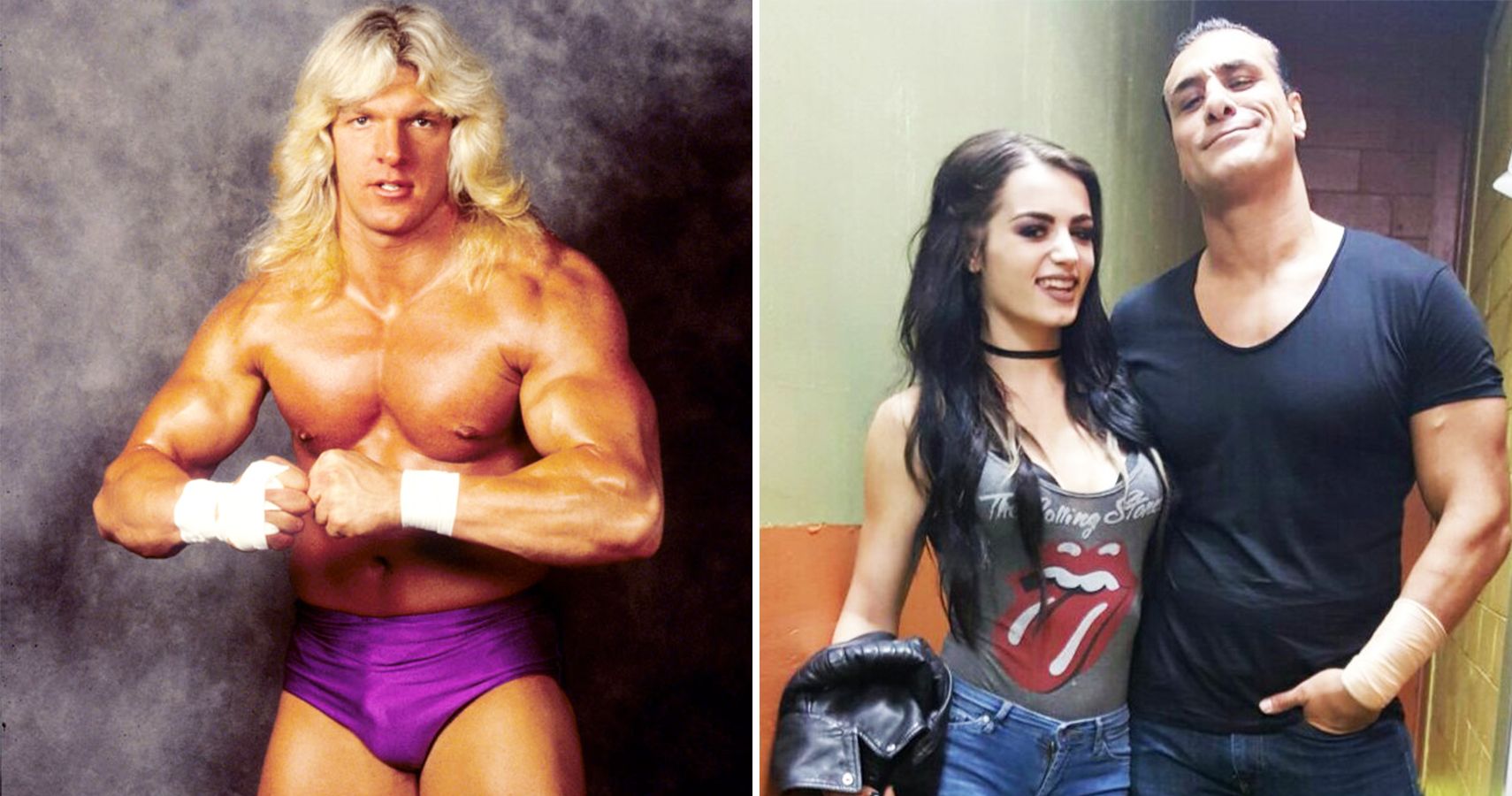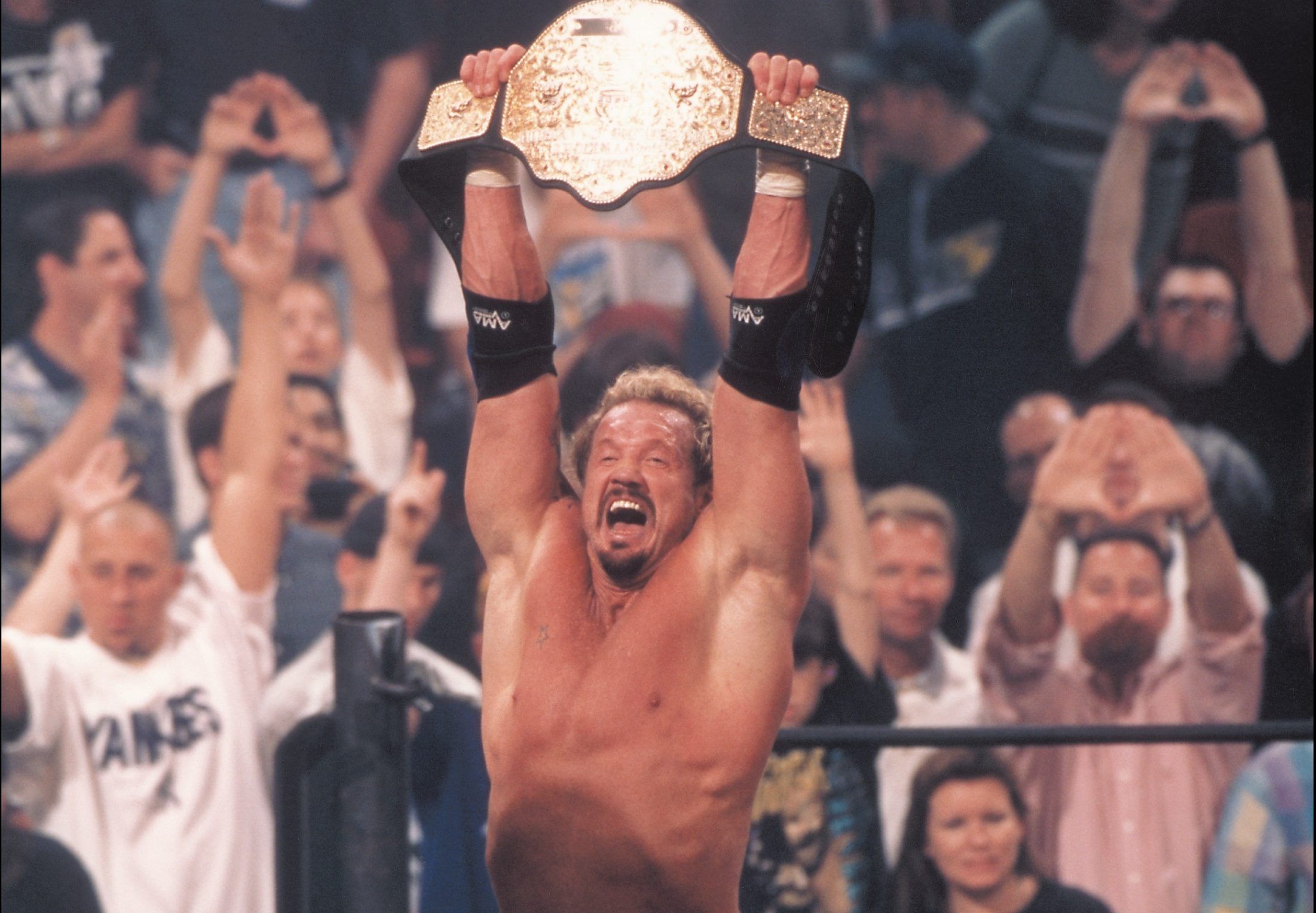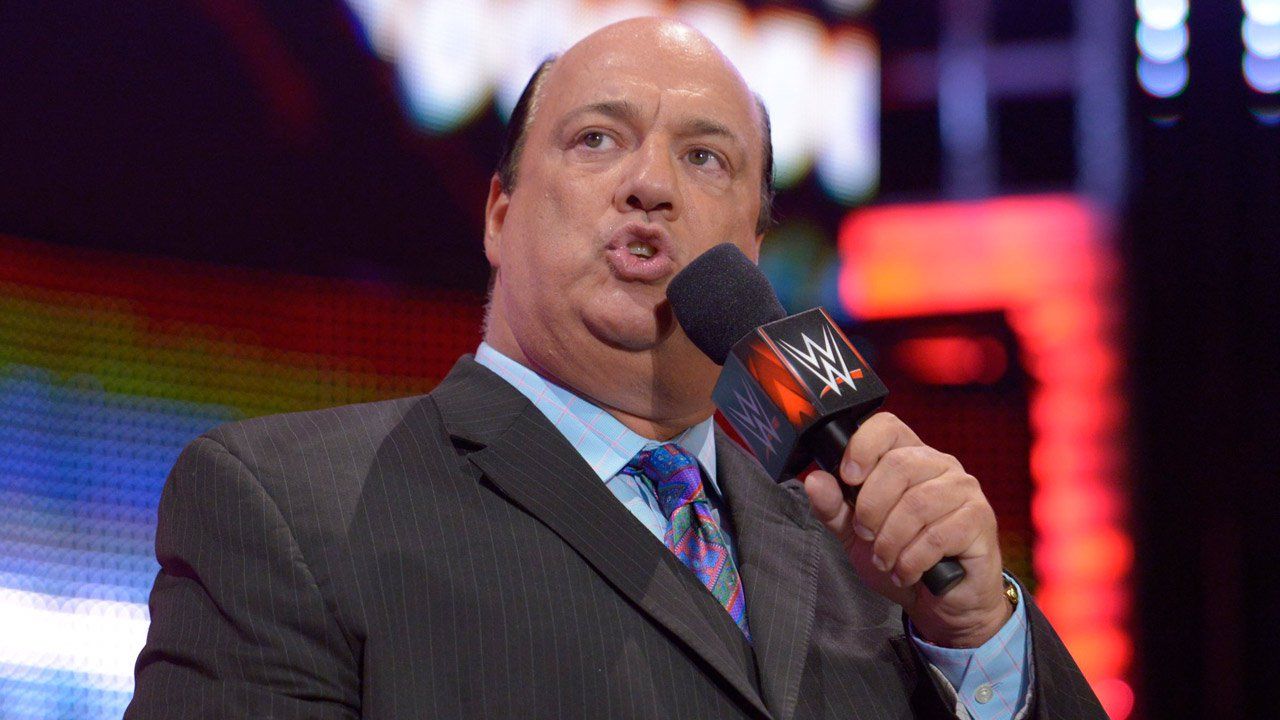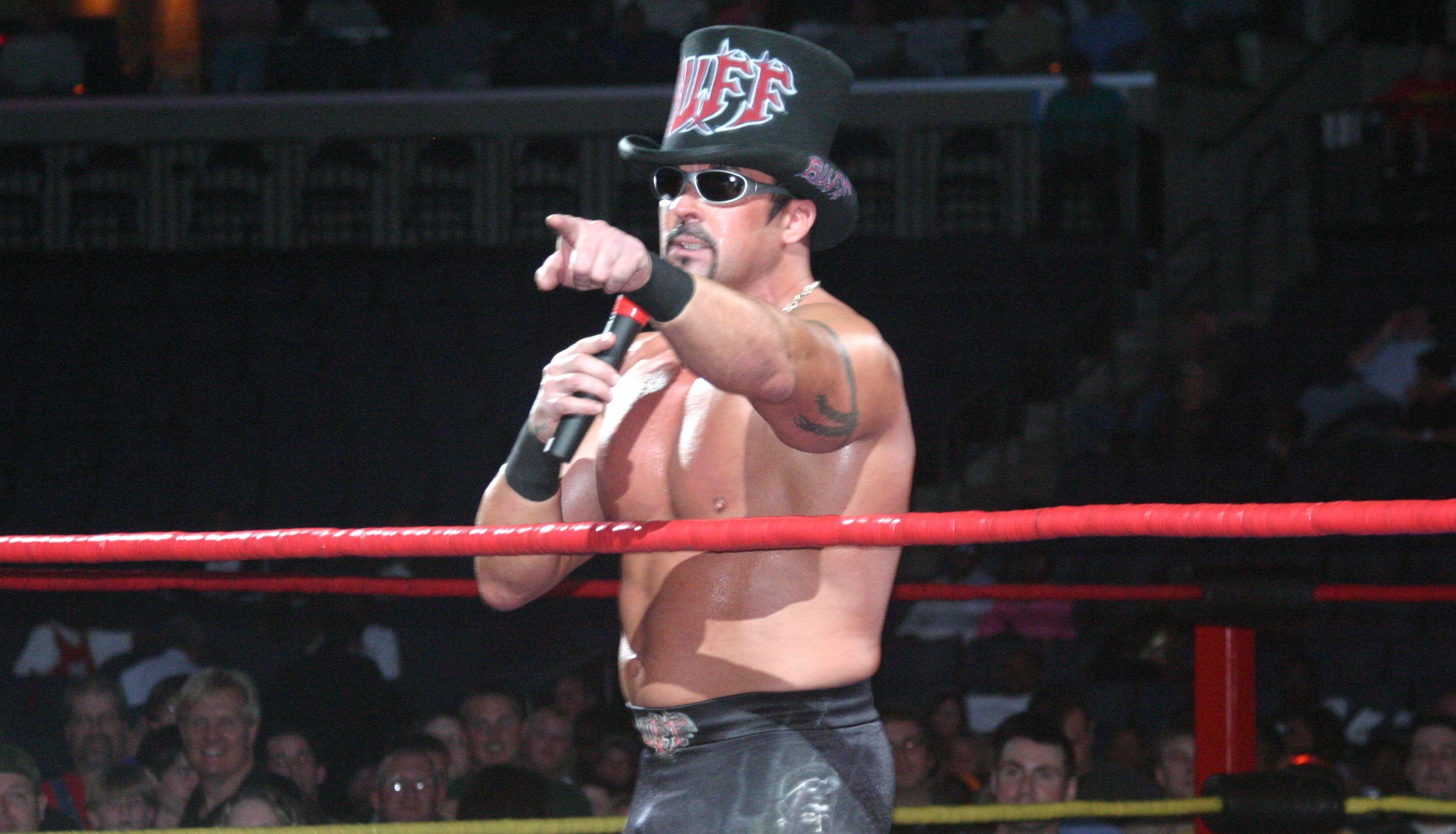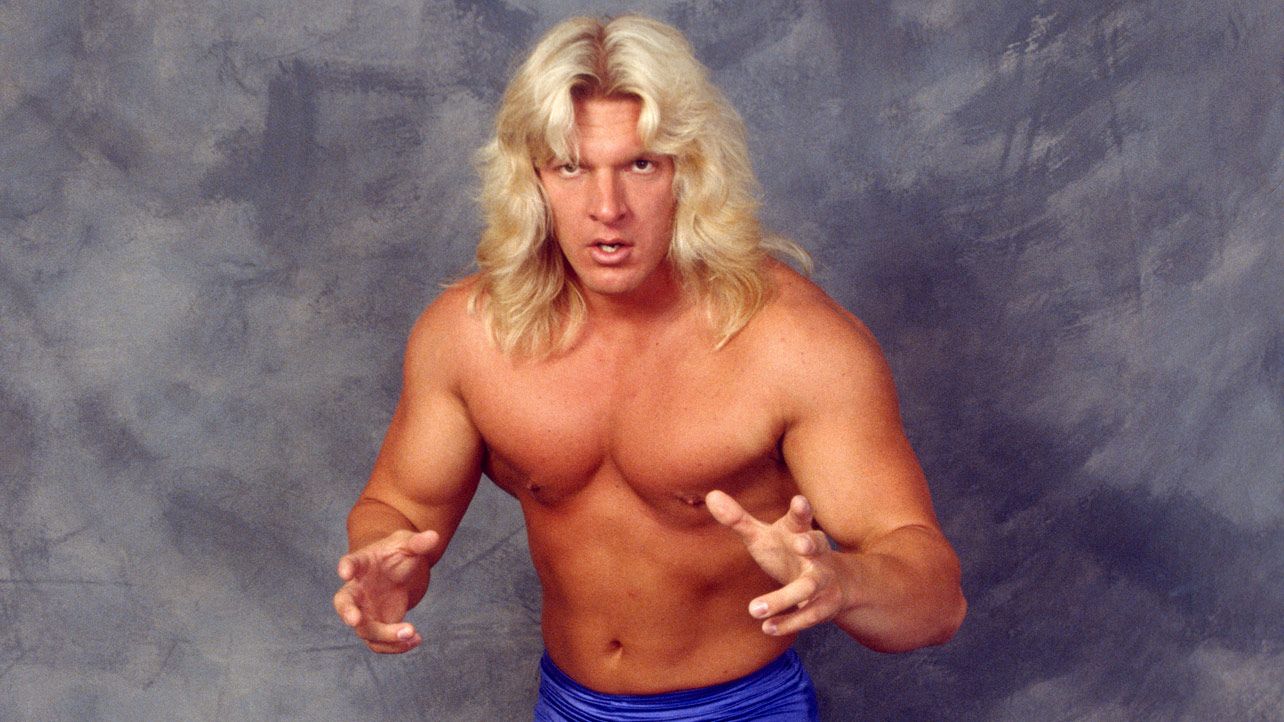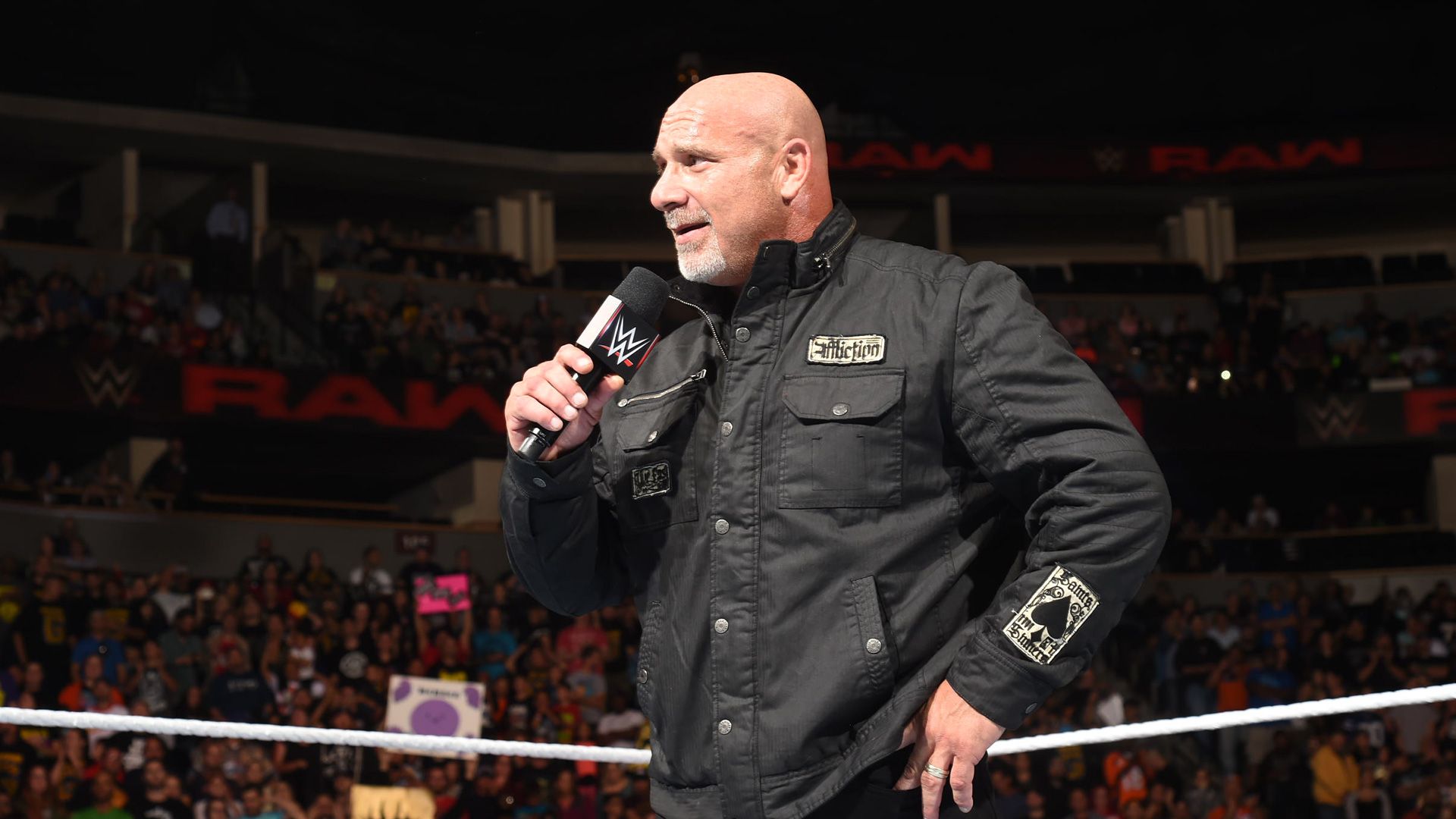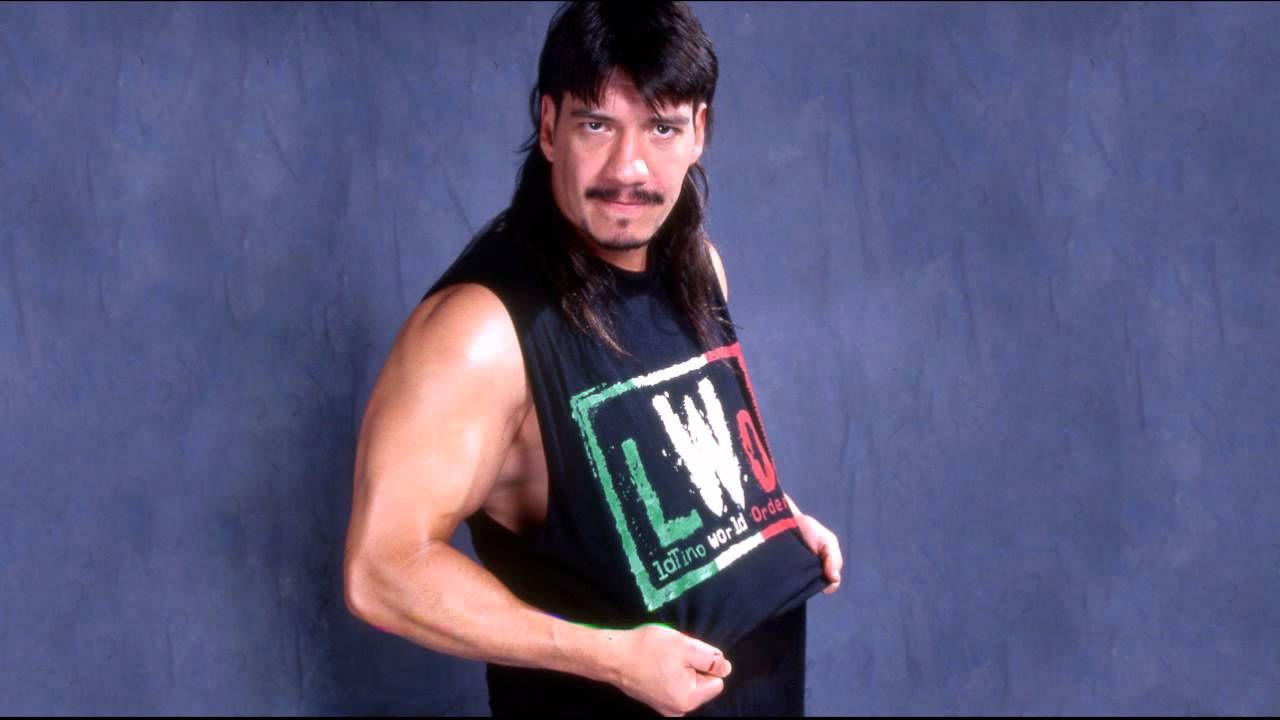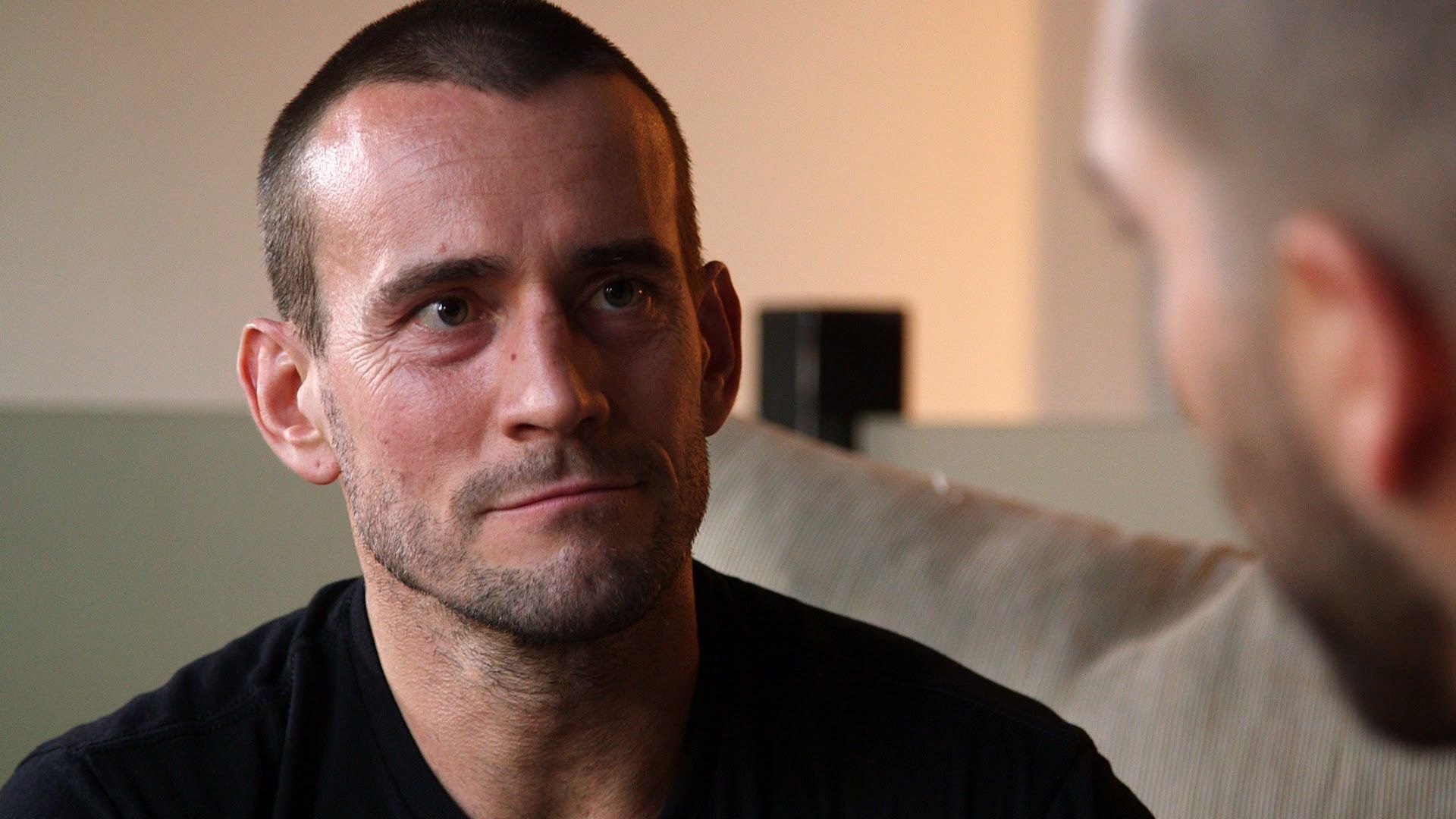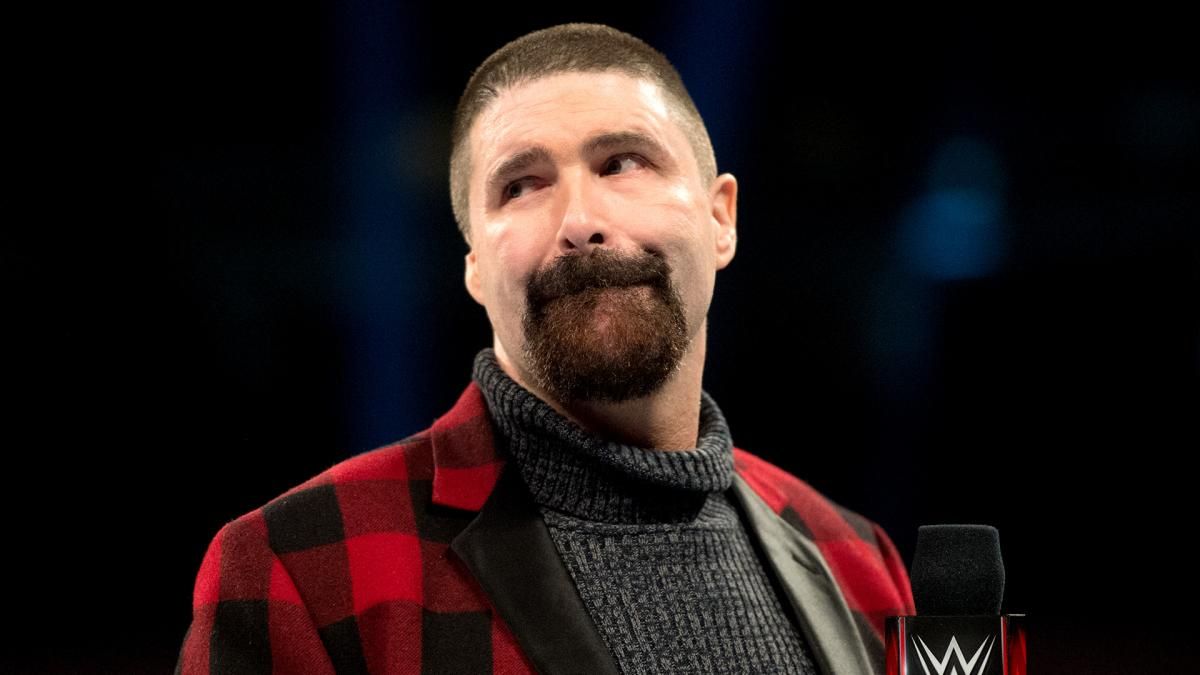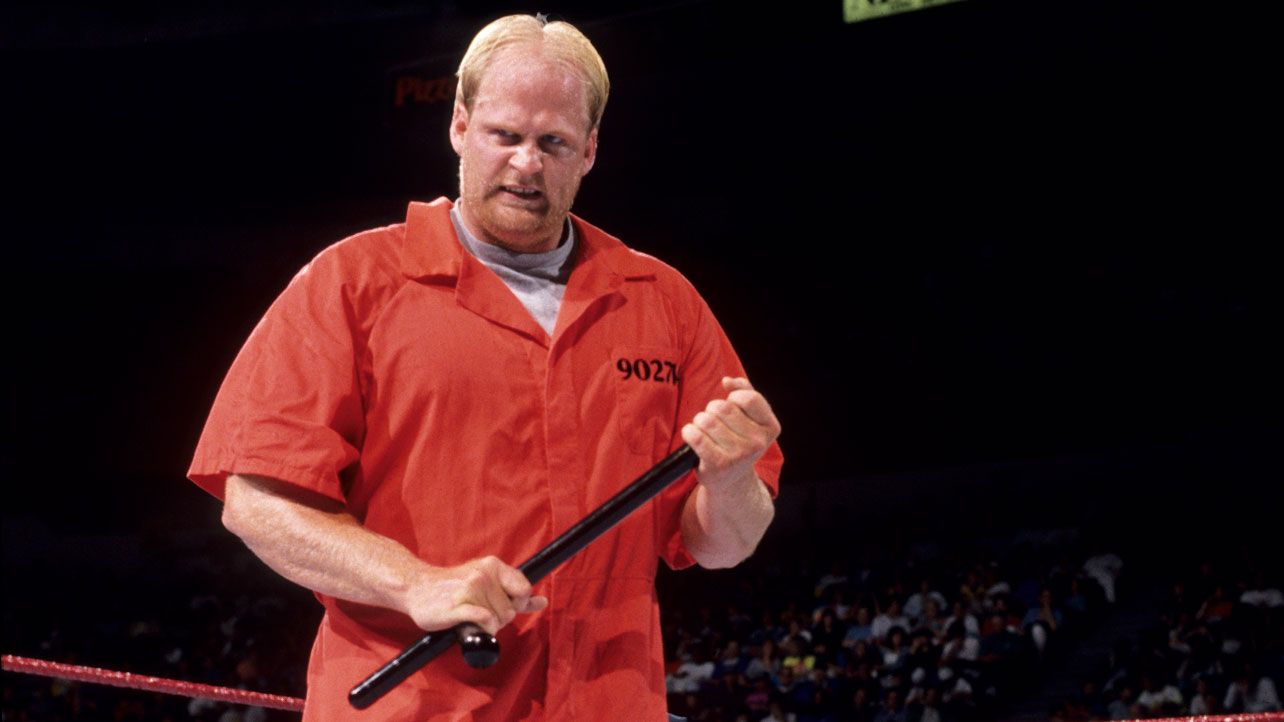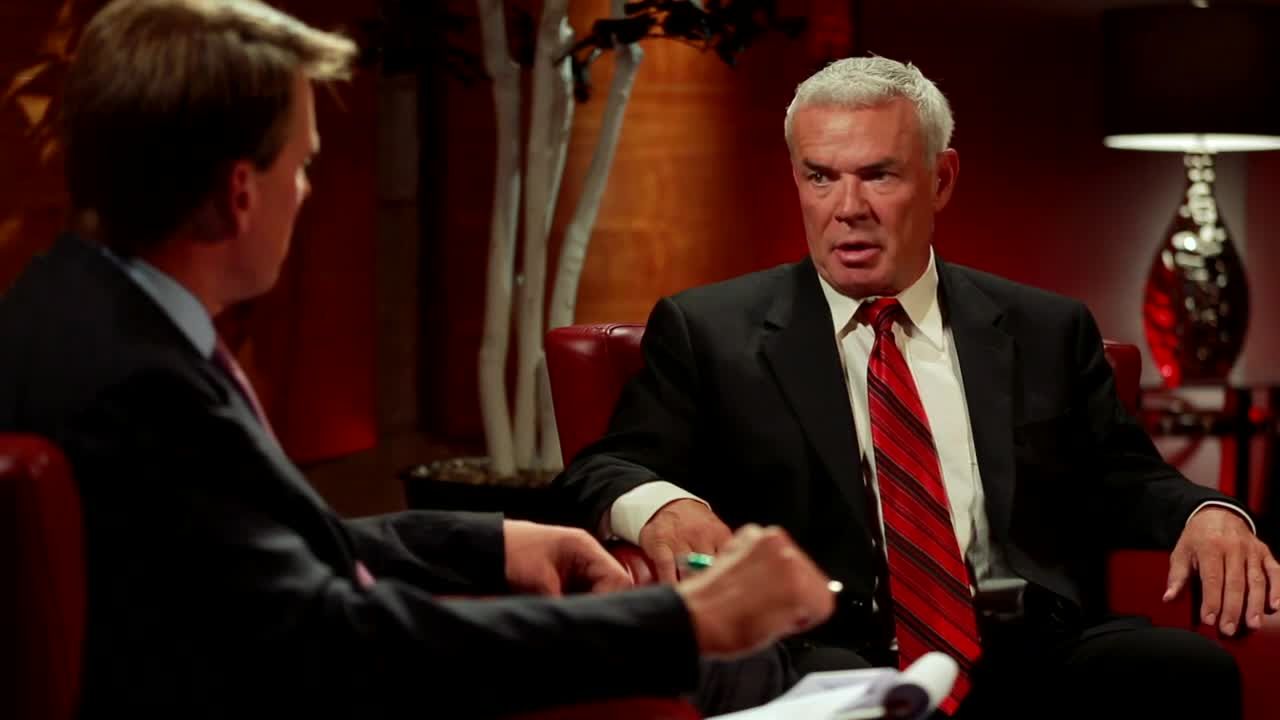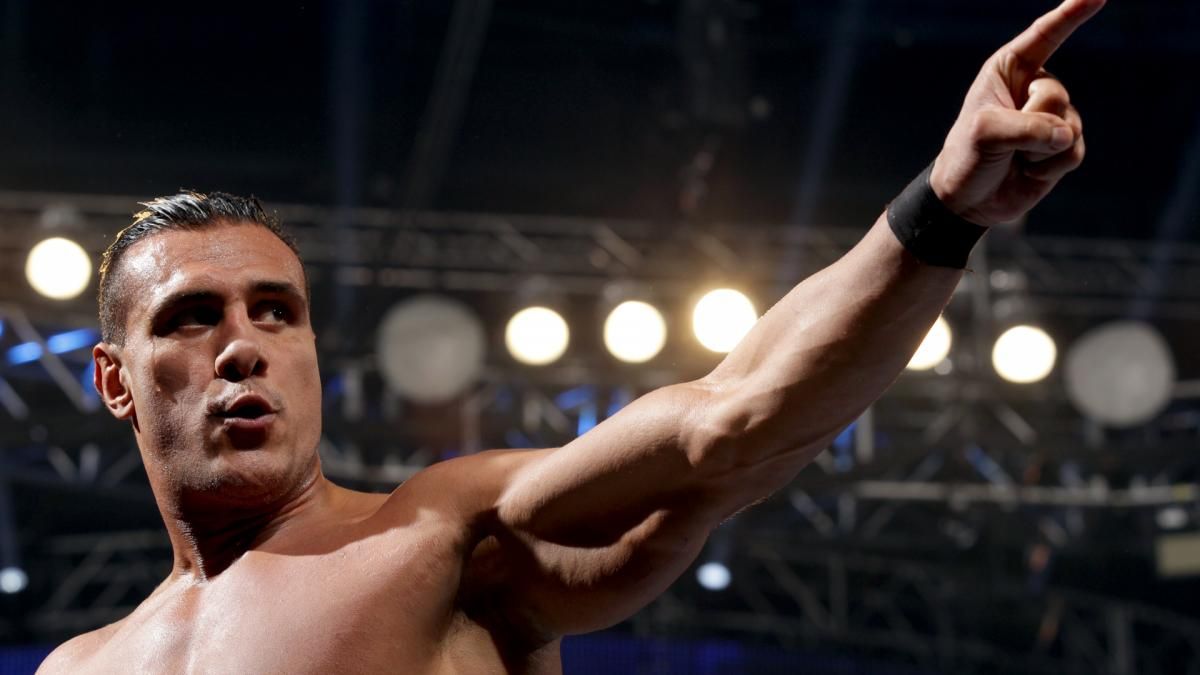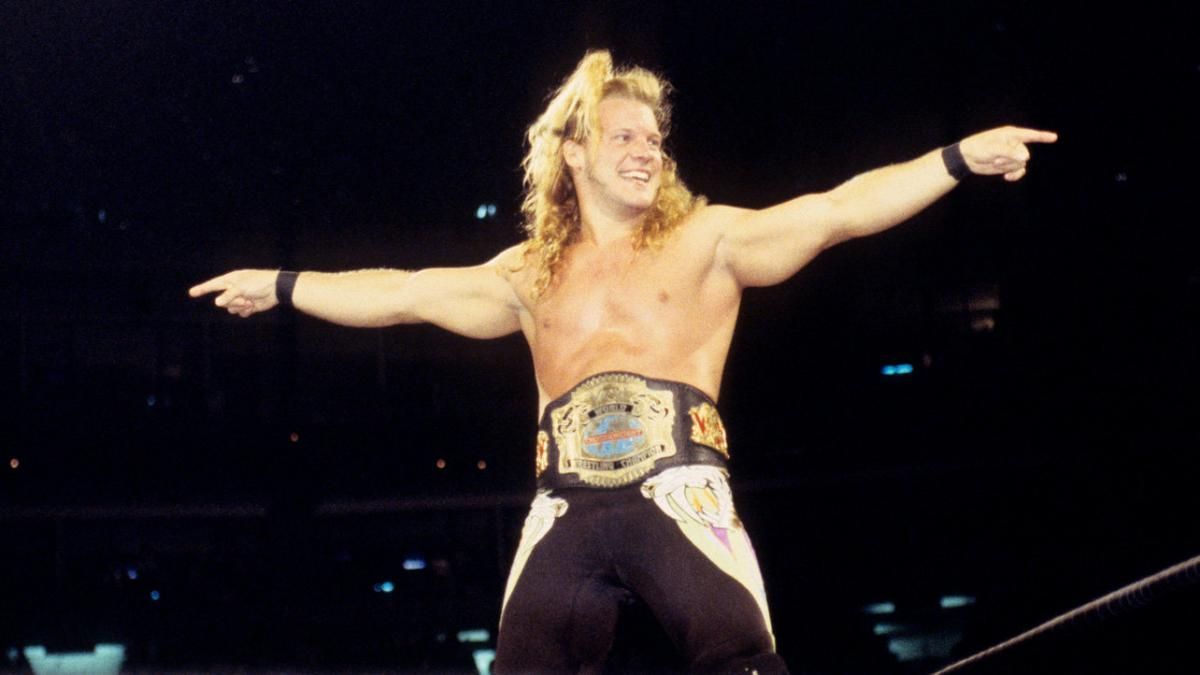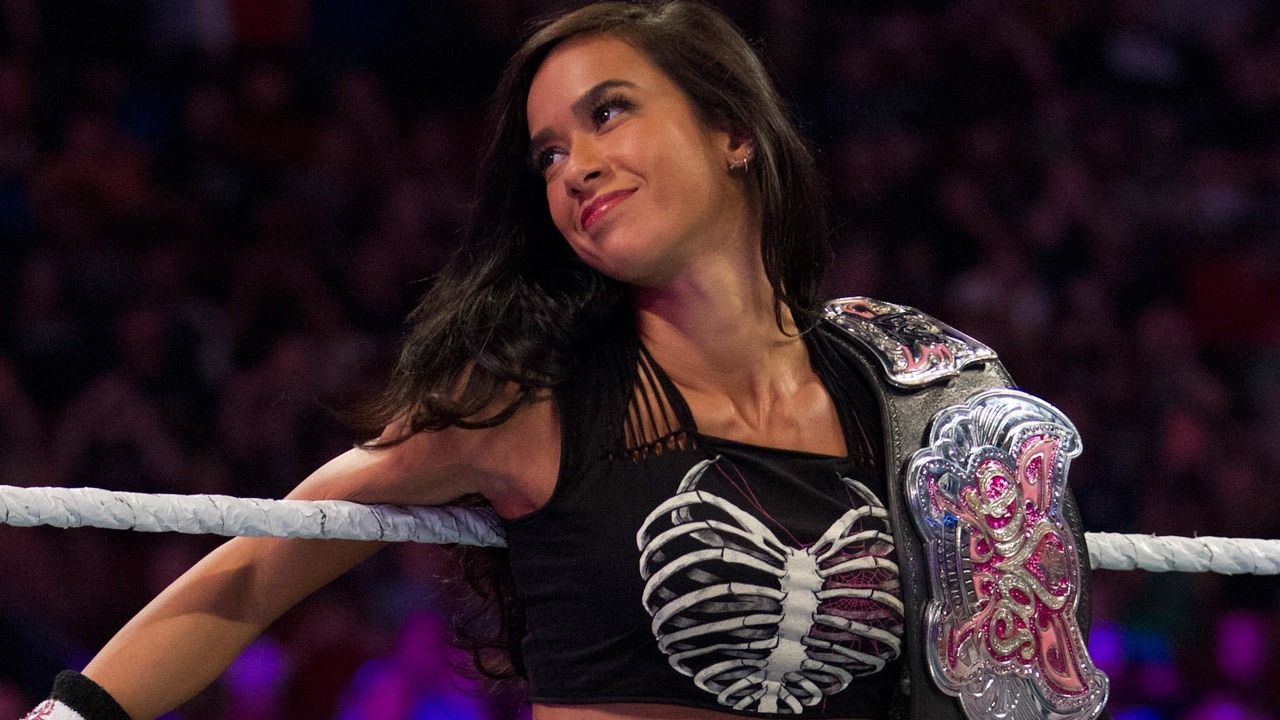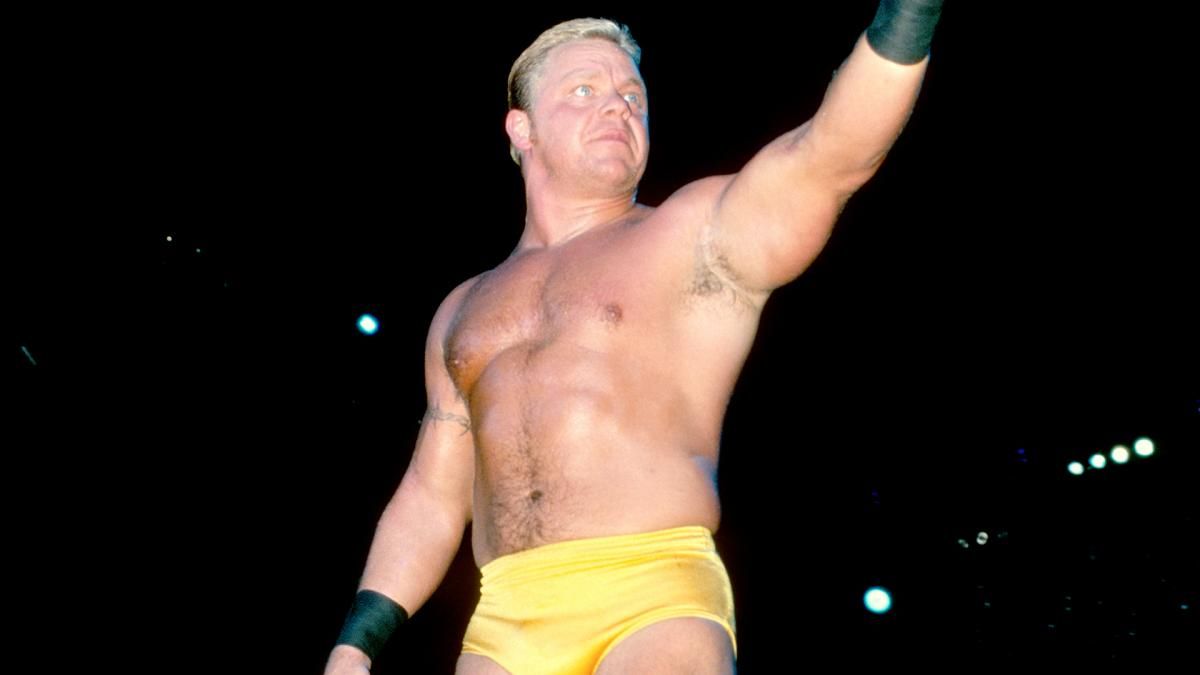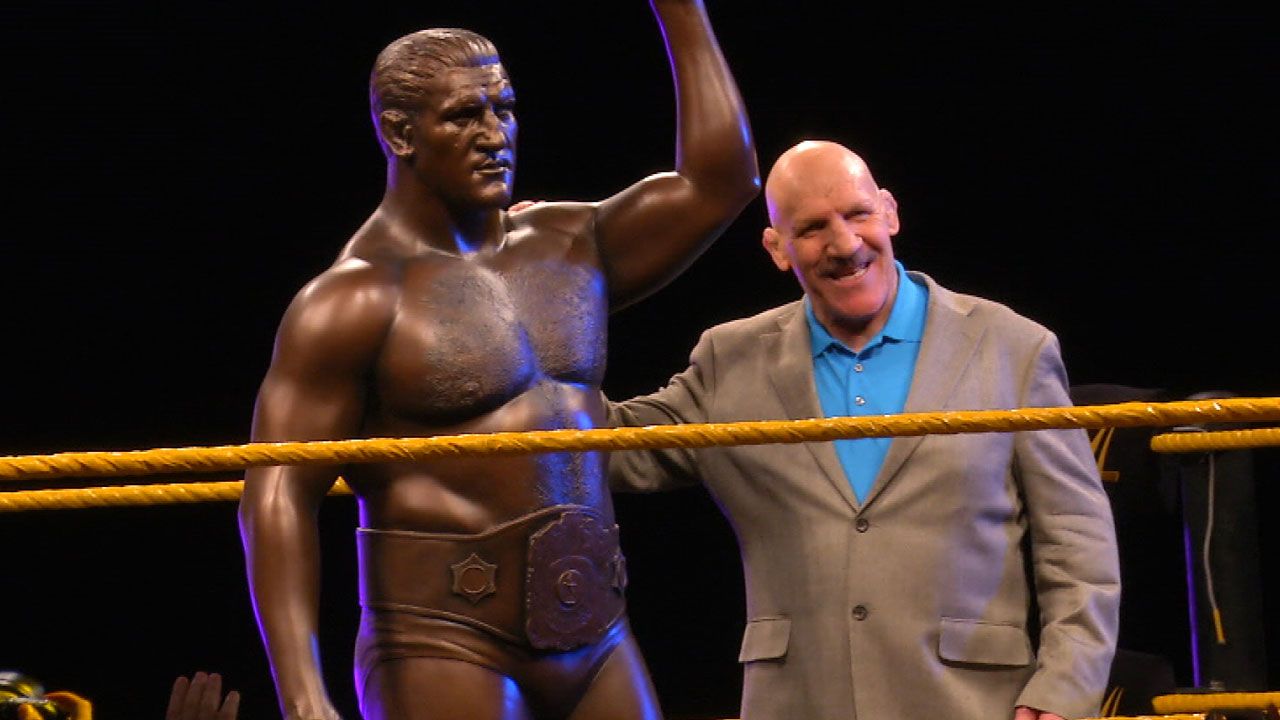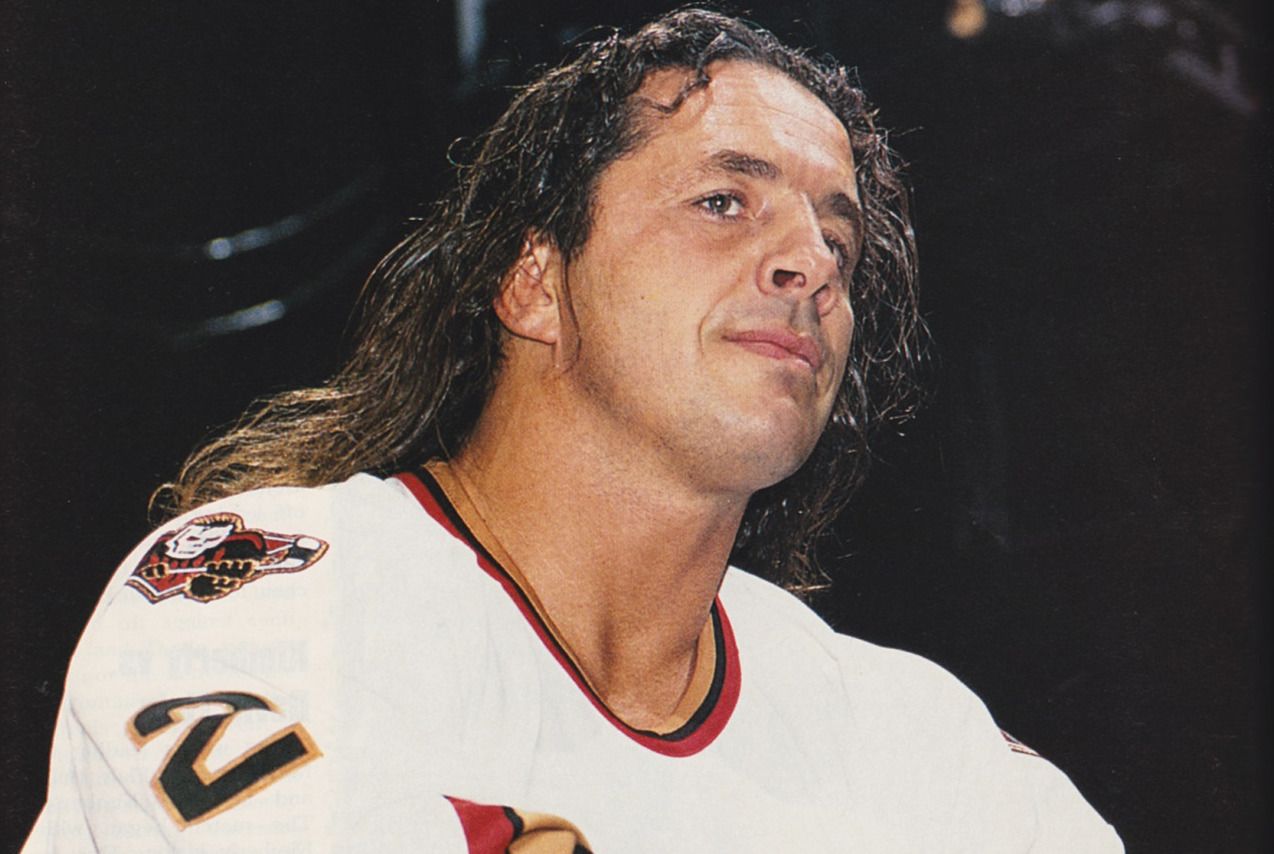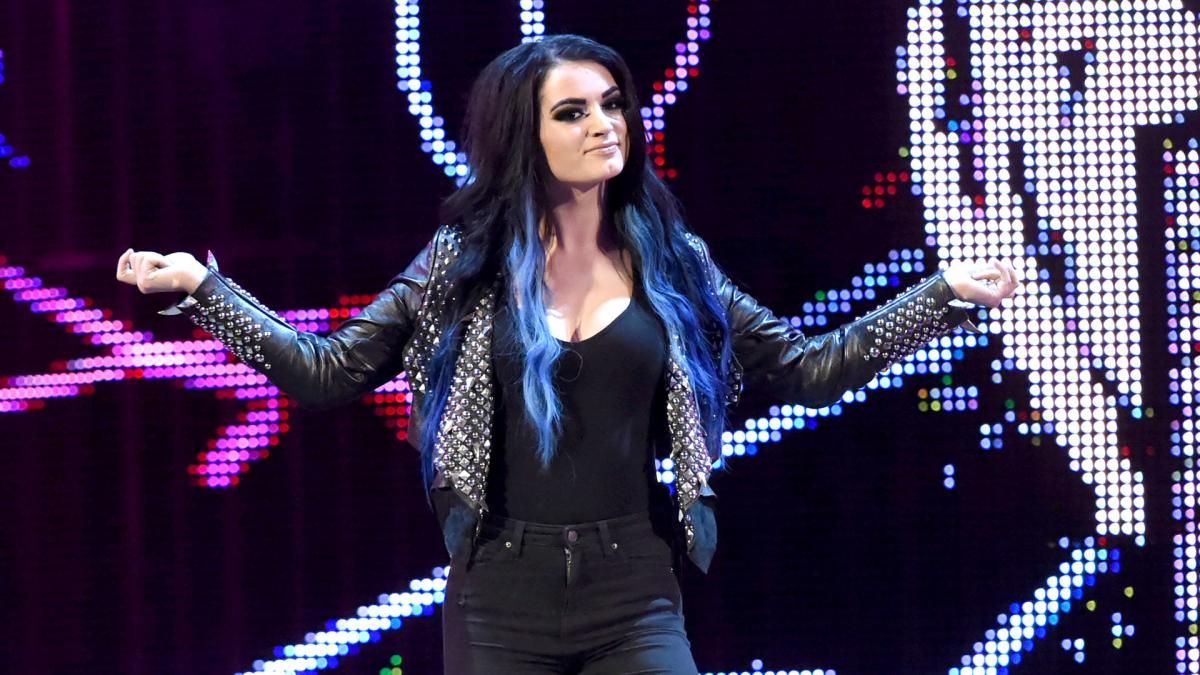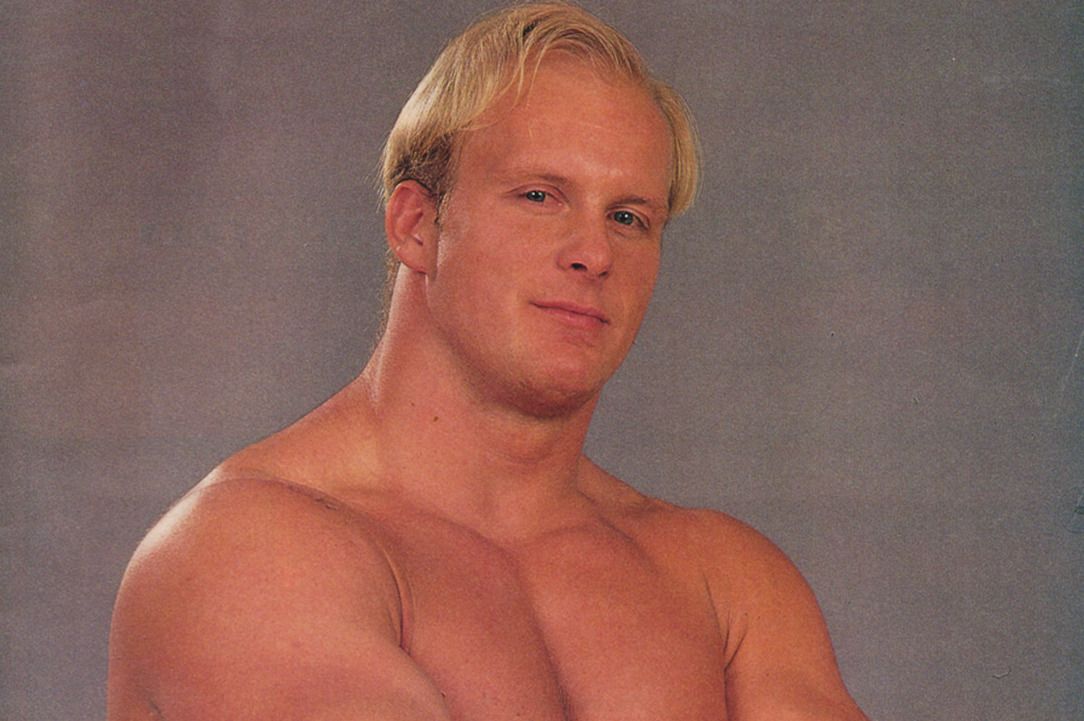After years of coexistence, from the mid-1990s to spring 2001, WCW and WWE were truly in competition with one another. Many cite the launch of Monday Nitro as the beginning of the war between two national wrestling companies, and there’s good reason to because the show put the brands in direct, literal competition with one another for the first time. Another key element of the war, though, was movement of talent between the two companies.
It was never uncommon for talents to move from one company to another for a better payday or a better spot on the card. But WCW began to compete, in earnest, when it signed Hulk Hogan, the biggest WWE star of all time. The addition of Randy Savage and cast of other 80s WWE stars furthered the cause. From there, Lex Luger making a surprise debut on the first episode of Nitro, and the arrival of Scott Hall and Kevin Nash kind of posing as WWE interlopers all made it clear WCW was actively targeting WWE.
Along the way, there were major stars who either started out in, or later found themselves working for WCW who hated the company. Whether they found it mismanaged, didn’t like the creative team, or had other gripes, they had a lot of bad things to say after WCW folded. On the flip side of the coin, there are those performers who hate WWE. Some were true blue WCW talents who didn’t fit in, and some are performers whose careers took off after WCW closed, such that WWE was the only place in the U.S. to really make it to the top level, and they became disillusioned with what working for WWE really entailed.
This article looks at 10 wrestlers who hated working for WCW, and 10 who hated working for WWE.
20 20. Hated WCW: Ric Flair
While Ric Flair may be one of the names most synonymous with WCW, and he spent a good bit of his prime there, he doesn’t have much positive to say about the organization. Between shoot interviews and his book, To Be the Man, Flair faced frustrations upon frustrations with the company’s management. One of the early signs was when Jim Herd came into power and wanted to rebrand Flair in a gladiator-esque Spartacus gimmick. This era of butting heads led to Flair’s first tenure with WWE.
Down the road, Flair would feel profoundly insulted by Eric Bischoff. Bischoff demeaned Flair’s legacy in front of the locker room in suggesting Hulk Hogan and Roddy Piper were the only guys on the roster who’d ever drawn a dime. Later, the two sides got into a pissing match when Flair asked for time off to attend his son’s wrestling meet, only for Bischoff to call him in at the last minute for a spot that was not important to the storylines at the time.
Flair has commented in WWE-produced documentaries that he was happy when WCW was sold off to WWE, and said good riddance to the company that had caused him so much heartache.
19 19. Hated WWE: Diamond Dallas Page
Diamond Dallas Page was one of WCW’s few homegrown main event stars, who purportedly got along with most of the WCW locker room and was personal friends with Eric Bischoff. Thus, it may came as little surprise that he’s one of the few major stars of WCW who has never really griped about the company.
DDP accepted a WWE buyout of his contract, and was never treated like much of a star, thoroughly trounced in a feud with The Undertaker and Kane before moving the mid-card where he was cast into a rigid gimmick as pushing a positive philosophy. According to a variety of sources, The Undertaker and WWE management didn’t much like Page’s in ring work, particularly that he didn’t “bump and feed” in the WWE style—jumping up to take more punishment to absorb a face’s flurry, but rather staying down to sell his bumps in the WCW style.
Page has generally given a simple, diplomatic explanation for why he didn’t click with WWE, saying “I was a WCW guy” to the public, and explaining he only came over because he wanted to work a WrestleMania. Accordingly, he got his ‘Mania match opposite Christian in 2002 and departed WWE shortly thereafter. While DDP worked for a year in TNA afterward, he mostly retired from that point forward.
18 18. Hated WCW: Paul Heyman
Paul Heyman is known for two things. He was the creative mastermind behind the ECW brand that helped revolutionize wrestling in the 1990s. He was (and still is) an outstanding, sharp-tongued manager.
Heyman hated his time with WCW.
To be fair, Heyman did get a bit of time to be himself heading up the Dangerous Alliance stable there, but has, in numerous interviews, explained his disdain for WCW management and creative, all of which was stale, short-sighted, and completely at odds with how Heyman views the business. While Heyman’s had his struggles, too, with the corporate nature of WWE, the organization seems to respect Heyman’s wrestling mind. Moreover, WWE has at least proven its practices successful in the long-run, counter to WCW which ultimately ran itself into the ground.
17 17. Hated WWE: Buff Bagwell
If there were any WCW mainstay who seemed as though he ought to transition well to WWE, it was Buff Bagwell. He had a killer physique and good charisma, not to mention that he’d evolved into a passable worker over his years with WCW.
Bagwell didn’t do well in WWE. His lone match—the first ever WCW-branded match on RAW—saw him square off with Booker T in an awkward dud. From there, Jim Ross has accused Bagwell of having his mom call in sick for him in a horribly unprofessional manner for a professional athlete.
While Bagwell has generally been diplomatic, when he discusses his brief time with WWE, there tends to be an undercurrent of feeling the company wronged him or was out to get him. He’s questioned why WWE put him and Booker on RAW in a match with no storyline or build between two guys who didn’t have any natural chemistry. Why would they do that for any reason but to watch them fail? He’s also claimed the story of his mom calling in for him has been badly distorted, and that Ross has talked out of both sides of his mouth in saying Bagwell should reach out to WWE in the future, and then treating him like a pest when he did.
16 16. Hated WCW: Triple H
Triple H has been open about his appreciation for NWA history, and his work was clearly influenced by performers like Harley Race and Ric Flair. He got his big break working for WCW, but has rarely had anything positive to say about the experience. Indeed, in his Thy Kingdom Come documentary from WWE, he discussed Flair himself arbitrarily plugging Helmsley into a Frenchman gimmick, despite the fact that he didn’t speak a lick of French.
Helmsley made it plain that when his WCW contract expired, he was all too eager to jump to WWE, where he’d have more opportunities to actually wrestle and hone his craft, and where he felt he would have the opportunity to become a star. Clearly, he did all right for himself, becoming one of the biggest stars in the company’s history and marrying into the McMahon family such that he’s quite possibly the heir apparent to Vince McMahon’s empire.
15 15. Hated WWE: Goldberg
Goldberg bolted to stardom in WCW, riding an undefeated streak straight into the main event and a world title reign. Understandably, he’d feel some loyalty toward the company that made him a superstar (even if they were also guilty of missteps like fumbling his character with an ill-advised heel turn and led him to a career-threatening injury when he punched out a car window).
Goldberg made his way to WWE a full two years after they bought out WCW, and long after the dust had settled from the InVasion angle. On the surface level, you might think Goldberg enjoyed his time with WWE, given he was similarly booked as a main eventer and beat top stars like The Rock, Triple H, and Brock Lesnar. Goldberg and WWE never quite clicked, though, in part because WWE so humanized his character. Yes, he’d win the vast majority of his outings, but rarely in his signature quick, dominant fashion; more often he’d get involved in overly-long slogs that exposed his limitations as an in-ring worker. Years after that first WWE run, Goldberg spoke in interviews about how he had nothing good to say about WWE or Vince McMahon.
Time heals all wounds and Goldberg seems to have made amends with WWE, working a more successful run with the company over a decade later, that just wrapped up this past month.
14 14. Hated WCW: Eddie Guerrero
Like so many talented, smaller wrestlers, Eddie Guerrero got the chance to break through to a national audience via WCW. The trouble is in his five years with the company, despite emerging as one of the very best all-around performer of his generation, WCW kept the glass ceiling firmly in place, never letting him out of the mid-card pack.
Guerrero purportedly plead his case to Eric Bischoff and was largely dismissed, in an incident Guerrero would play up for a worked shoot promo down the line. In any event, Guerrero made no bones about his distaste for WCW and squandering his physical prime in a low profile position there. WCW would ultimately let him out of his contract and he’d promptly head over to WWE. While it would take time, and he’d have to work his way up the ranks (and even leave to work the indies for a year), four years later, the guy got his just desserts, finally a world champion.
13 13. Hated WWE: CM Punk
Were WCW still around when CM Punk was coming up through the ranks, I don’t suspect he would have liked the company very much. What we know for sure is that Punk did come up from backyard wrestling, through the indies, and into WWE only to find himself miserable. Some of Punk’s discontent was unavoidable, like the discomfort he seemed to have with being a celebrity, and the difficulties of the company’s schedule on the road. There were philosophical issues, too, though. Punk took issue with WWE creative and how he and guys around him were used. From there, he took umbrage with WWE’s doctors in a conflict that the courts and each side’s legal representation have yet to finish going through.
At heart, Punk was an anti-establishment guy working beneath a very corporate structure. Things probably would have been even worse in WCW, for which the bureaucracy and poor creative were only exacerbated. Just the same, Punk had made it clear he left WWE with very hard feelings.
12 12. Hated WCW: Mick Foley
Mick Foley rose to national prominence via his time with WCW, under the Cactus Jack gimmick. Despite getting opportunities at the main event level, first as a heel challenging Sting and later as a face challenging Vader, WCW never seemed to think of him as a real top talent. Moreover, his signature hardcore style did not go over particularly well in an era when WCW was edging more family friendly en route to bringing in Hulk Hogan.
Foley’s career post-WCW showed a lot about his relationship with the company. In ECW, he used his previous WCW connection as a gimmick, working overtly heel by praising WCW and Eric Bischoff to the disdain of the hardcore fans. From there, when Foley made it WWE and reached the top of the mountain with his first world championship win, WCW did all it could to cheapen the moment by making fun of him on their live broadcast that aired opposite the pre-taped title win. While Foley got the last laugh—a certified legend and multi-time world champion long after WCW went out of business—commentary in his books and in interviews has not been kind toward his former employer.
11 11. Hated WWE: Nailz
WWE brought in Nailz as a monster heel, introduced as an ex-convict to rival The Big Boss Man’s face prison guard character. Nailz looked lined up to challenge The Undertaker next, and while he was probably never destined for long-term stardom or a world title run, he had a look and gimmick suited to reasonable success.
Whether Nailz had a short fuse or he was actually wronged by WWE we may never fully know. Regardless, he felt as though management had lied to him about the kind of money he’d make and stardom he’d achieved, culminating in a wild backstage incident in which he physically attacked Vince McMahon. Lawsuits followed, and Nailz testified under oath that he hated McMahon’s guts. Nailz would go on to wrestle briefly in WCW as The Prisoner, but didn’t arrive at much success there either.
10 10. Hated WCW: Eric Bischoff
For many fans, the name Eric Bischoff is synonymous with WCW, and so it may come as a surprise that Bischoff himself had his issues with the company. Despite Bischoff’s meteoric rise to power with the company, and being a key decision maker for a period of years, Bischoff hasn’t shied away from acknowledging problems in WCW management and in managing WCW talent.
In particular, Bischoff has been very open about feeling he had his legs cut out from under him in being relieved of his duties at WCW unceremoniously, and scapegoated for issues that were not his fault. Moreover, his book, Controversy Creates Cash goes into his difficult working relationship with Vince Russo when WCW had the two work together.
While he's probably, in part, looking out for his next paycheck, he has, in contrast, been very gracious in discussing his time as an on-screen character with WWE, and particularly lauded Vince McMahon’s vision and business sense.
9 9. Hated WWE: Alberto Del Rio
Alberto Del Rio got a huge push when he debuted in WWE, cleanly defeating Rey Mysterio in his debut, winning the biggest Royal Rumble in history, and progressing to WrestleMania to challenge for the World Heavyweight Championship. Del Rio’s run was a bit of a rollercoaster from there, as he came up short in a number of big matches, but did wind up a multi-time world champion who was never too far from the main event picture. Whatever backstage tensions there may have been, they remained quiet at the time, until an infamous incident when Del Rio slapped a backstage employee for using a racial epithet.
Against the odds, Del Rio wound up back in WWE a year later. His surprise return was huge, not least of all including a clean win over John Cena to take the United States Championship. However, his on-screen character quickly fizzled into a directionless haze as rumors abounded that management—particularly Triple H—thought Del Rio was lazy and a bad influence on the rest of the roster. Del Rio wound up leaving again as soon as he had an option on his contract and has since made no bones about blasting WWE and particularly Hunter on social media.
8 8. Hated WCW: Chris Jericho
After wrestling around the world, Chris Jericho got his break in the U.S. working for WCW. While his personality got him attention, and he was one of the more memorable mid-carders of his day, he nonetheless hit the glass ceiling. Goldberg was reportedly unwilling to work a proper program with him (even though Jericho was more than willing to put him over). Worse yet, in an incident addressed in Jericho’s first book, A Lion’s Tale, it looked as though top stars may have even been skimming off of his merchandise royalties based on the way bar codes for WCW’s line of toys rang up.
Jericho was all too eager to jump to WWE where he spent his very first night in a war of words with The Rock. While Jericho still found himself in the mid-card for his first years with the company, in WWE he had the opportunity to move up the ladder, and by WrestleMania X8 was defending his world championship in the main event.
7 7. Hated WWE: AJ Lee
AJ Lee didn’t quite fit into scheme of WWE programming when she arrived on the scene in 2010. While today’s women’s rosters features women of different sizes, body types, hair colors, and races, Lee debuted in an era dominated by pretty blonds who couldn’t wrestle. Lee is of Puero Rican descent, and was a self-professed video game nerd, not to mention a skilled practitioner in the ring.
Lee became an unlikely star, arguably shooting to over-exposure when she was involved in main event storylines as an on screen love interest for Daniel Bryan, CM Punk, and John Cena, not to mention getting cast as the general manager of RAW. When she settled into a wrestling role, though, she seemed most at home as a performer, but became increasingly disgruntled with the overarching direction of the company. For while Lee did get featured, including a lengthy reign as Divas Champion, she was also resentful of the culture of Total Divas and the way WWE tended to cast women less as athletes, and more as drama queens. This all came to a head with her worked shoot promo in the style of her real life partner CM Punk’s 'Pipebomb', during which she dressed down the rest of the women’s roster. Lee would ultimately leave WWE, announcing her retirement at the age of 28.
6 6. Hated WCW: Shane Douglas
Shane Douglas’s career spanned a lot of different promotions. He arrived at his greatest success working with ECW, including becoming the company’s first world champion when it rebranded from Eastern to Extreme Championship Wrestling. He had his stints in WCW and WWE, too, though, neither of which he has much positive to say about in retrospect.
Douglas seems particularly bitter regarding WCW. He’s spoken a lot about a time early in his career when he asked Ric Flair to watch him and give him advice, only to catch The Nature Boy in a lie and find he wasn’t watching at all. Douglas returned toward the end of WCW’s run, after he and Flair had traded real life barbs, and Douglas thought the two of them could have a great program together, playing off their real life history. In an interview last year with The Two Man Power Trip of Wrestling, he explained that Flair agreed to his face, but that he learned, years later from Vince Russo, Flair politicked against him. He claims Flair ensured they’d never have a proper, focused program or blow off match, and Douglas would never get an opportunity to prove himself in a high profile spot.
Interestingly, Douglas actually praised Eric Bischoff for doing right by him financially, but his WCW career is irrevocably intertwined with Flair and there remains a lot of bitterness there.
5 5. Hated WWE: Bruno Sammartino
Bruno Sammartino is one of the definitive legends of WWE history, who held the world championship longer than anyone and was undeniably the biggest star the company ever had pre-Hulk Hogan. Just the same, when Vincent Kennedy McMahon took over his father’s business, his vision for the company and pro wrestling opposed Sammartino’s principles.
Sammartino believed in a family-friendly product, sold as a legit sport, focused on delivering realistic-looking action. He’s spoken out in a variety of interviews against McMahon’s emphasis on physiques and placement of Hulk Hogan, as a limited and cartoonish worker, on the top of the company. Sammartino hung around for the early days of Hulkamania, perhaps in the interest of helping his son who wrestled for WWE but never really got over. Sammartino’s work as an announcer, as his son’s manager, and in limited in-ring work largely got lost to the sands of time as he was shuffled to the side and wound up leaving WWE before the company peaked at WrestleMania III. In the aftermath, Sammartino was vocal critic of other elements of WWE programming, too, including mature angles and objectifying women in ways that he felt corrupted the business.
Against all odds, Sammartino returned to the WWE fold more than 25 years later, courted by Triple H and was won over by the company’s return to a more family-friendly presentation. Nonetheless, it remains clear he was unhappy in his final years working with WWE as a full-time performer.
4 4. Hated WCW: Bret Hart
Few wrestlers have ever left WWE on more bitter terms than Bret Hart in 1997. After over a decade of loyal service, including multiple main event runs, he was the victim of the Montreal Screwjob and, afterward, was one of the few wrestlers to ever put his hands on Vince McMahon when he punched him out in the locker room.
You’d think Hart would go to WCW with glee, in hopes of driving WWE out of business. To the contrary, in his book Hitman: My Real Life in the Cartoon World of Wrestling, Hart discusses at length that he never wanted to go to WCW and only did so for money and because McMahon said he couldn’t afford him. Hart’s worst fears were realized in a mismanaged wrestling company in which Hart found himself thrust into storylines he neither agreed with nor could always understand, including willy-nilly face-heel turns. This all culminated in him suffering a career-ending concussion that he suggests the WCW brass tried to get him to work through.
3 3. Hated WWE: Paige
This one is, technically, ongoing. Paige was still a teenager when she signed with WWE and debuted on the main roster at the age of 21. She immediately entered the Divas Championship picture and enjoyed a solid two and a half year run as a featured face.
Things took a turn, though. Paige started dating Alberto Del Rio. Maybe WWE started targeting her on account of Del Rio’s political issues in the company. Maybe Del Rio was a bad influence. Or maybe Paige had simply run her course at the top of the women’s division and mounting tensions between her and WWE management blew up on their own. Whatever the cause found herself suspended due to Wellness Policy violations, the details of which are still sketchy, and WWE and Paige still seem at odds about the legitimacy of them. Pair that with a neck surgery and, while Paige remains under contract, she hasn’t appeared on WWE TV for well over a year.
The fact that The Rock has partnered with WWE Studios on producing a film about Paige and her family may be the lone thing that keeps her under contract. Regardless, Paige and all the more so Del Rio have alluded to very real frustrations with the company targeting her, and it seems highly unlikely she’ll remain a WWE Superstar after her contract runs out.
2 2. Hated WCW: Steve Austin
Steve Austin stands alongside guys like Hulk Hogan, The Rock, John Cena, Ric Flair and Bruno Sammartino as one of, if not the single biggest wrestling star of all time. Go back to his work with WCW, and you’d never know it. That’s not a knock on Austin at the time so much as a testament to how oblivious WCW was to what they had in Austin.
Austin was a career mid-card guy in WCW. When he looked to be on the verge of a big singles push, WCW slapped him together with Brian Pillman as a makeshift tag team. When that tag team became explosively over, management tore them apart. When Austin looked like he might be on the cusp of moving up to the main event, WCW shifted directions in favor of incoming stars of yesteryear from WWE. Austin got lost in the shuffle again, until he was hurt and then fired via FedEx.
While Austin has grown more cordial toward his past with WCW and particularly toward Eric Bischoff over the years, the fact remains that he was criminally underutilized and overlooked within a system that was too dependent on milking established top stars over making new ones.
1 1. Hated WWE: Chyna
Chyna was one of the biggest female stars WWE had ever seen. She’s the only woman to ever become a regular fixture in the men’s ranks and the only woman to win the Intercontinental Championship.
While Chyna succeeded in WWE, and seemed to enjoy her experience well enough in those early years, things took a sharp turn in the later days of the Attitude Era. While the details and exact timeline remain sketchy, it seems Triple H and Stephanie McMahon were at least courting, if not fully romantically involved while Helmesley and Chyna were still dating. Chyna found herself caught in the unenviable position of a woman scorned with nothing she could do about it, given her ex was one of the top stars and power brokers in the company, who had made an unlikely move up the power chain in getting involved with the boss’s daughter.
Jim Ross has discussed Chyna’s situation on his podcast—particularly that she seemed unhappy, but Ross was advised to make her a big money contract offer to stay with WWE. Ross indicates that Chyna demanded even more money, well past what he was authorized to give, and so the company had to let her walk.
Surely, it’s oversimplifying to pin all of Chyna’s woes on her bad break up. She struggled with substance abuse and mental health issues for years to follow, though, and didn’t have anything positive to say about WWE in the years leading up to her passing.

